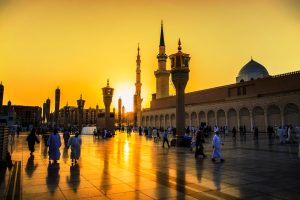
Raziullah Noman, Canada
One of the false allegations raised against the Promised Messiah, Hazrat Mirza Ghulam Ahmad (as) and his community, is that they have animosity for non-Ahmadi Muslims, God forbid. Nothing could be further from the truth. Hazrat Mirza Ghulam Ahmad (as) had no animosity for anyone, rather only hated false beliefs. He came to guide the Muslims and had a lot of love for them. He prayed for them day and night and always wished the best for them.
One of the revelations of Hazrat Mirza Ghulam Ahmad (as) received from Allah is as follows:
ربِّ أَصْلِحْ أمّة محمد
‘Lord, reform the people of Muhammad (sa)' [1]

In his Arabic poetry from the book Hamamatul Bushra, the Promised Messiah (as) writes:
فيا ربِّ أَصْلِحْ حالَ أُمّةَ سيدي
وعندك هَيِّنٌ عندنا متعسِّرُ
‘O my Lord, reform the condition of the nation of my Master. And this is easy for You and difficult for us' [2]
Hazrat Mirza Ghulam Ahmad (as) writes:
‘I declare unto all Muslims, Christians, Hindus and Aryas that I have no enemy in the world. I love mankind as does a mother, even more than that. I am an enemy only to such false beliefs as destroy truth. Sympathy for man is my duty and hatred of falsehood, idol worship, transgression and every kind of wickedness, injustice and evil behavior is my principle. The real reason for the effulgence of my sympathy is the fact that I have discovered a mine of gold and jewels and it is a good fortune that I have found in that mine a priceless diamond full of luster. The price of that diamond is so great that if I were to distribute it amongst all my brethren of mankind each one of them would become richer than the one who possesses in the world today the greatest quantity of gold and silver. What is that diamond? The true God.’ [3]
ENDNOTES
- Tuhfa-e-Baghdad, Ruhani Khazain, vol. 7, p. 25
2. Hamamatul Bushra, Ruhani Khazain, Volume 7, Page 328
3. Arba’in, Ruhani Khazain, Volume 17, Page 344




Add Comment